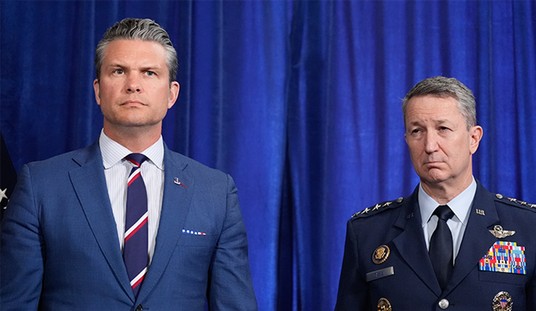Joe Biden tells whoppers with such frequency, it is dif
Memorial Day afforded Biden an opportunity to reflect upon the past and revise history yet again in support of his leftist agenda. But what tumbled out of Biden’s mouth that day was, as is so often the case, simply blunt falsehood, lacking persuasive power. In his ordinarily inarticulate way, Biden in a few words “recalled” false facts from history.
Speaking authoritatively after his visit to the site of the massacre at Robb Elementary School in Uvalde, Texas, Biden declared the Second Amendment not “absolute” and never intended to be. Conjuring up support from “history,” he said: “You couldn’t buy a cannon when it was passed.” In May of 2020, he likewise said: “You weren’t allowed to own a cannon during the Revolutionary War as an individual.” In June of 2021, he said: “The Second Amendment, from the day it was passed, limited the type of people who could own a gun and what type of weapon you could own. You couldn’t buy a cannon.” Even the Washington Post gave Biden Four Pinnochios for
Biden’s cannon comments add to the evidence impugning his competence. From these sentences we can harvest much to call into question Biden’s understanding of constitutional basics and American history. First, Biden’s repeated statement that the Second Amendment was “passed” suggests he does not comprehend the difference between a bill and an amendment. Bills are “passed” by Congress, but amendments are “ratified.” Under Article V, constitutional amendments are “proposed” to the states by Congress on a two-thirds vote (or are “applied for” whenever two-thirds of the state legislatures seek them) and then only become a part of the Constitution when ratified by three-fourths of the states. The term “passed” is mistaken when used in reference to constitutional amendment.
Biden not only is mistaken in his understanding of constitutional basics, he is also anti-historical when he contends that private cannon ownership was disallowed during and after the revolutionary war. To the contrary, many private citizens and private organizations bought, owned, used, and soldcannons before and after the revolution and through the Civil War. Indeed, there are private cannon owners across America today who, on occasion, salute a Memorial or Independence Day holiday with a cannon blast.
Recommended
From the colonial era through the revolutionary war, private militia owned cannons, which the British sought to confiscate and which the colonial militia put to use against them to defend their independence and rights. For example, private South Carolina militia under Francis Marion, the so-called Swamp Fox, owned a few private cannons (either purchased or confiscated from the British) and moved them about the Santee River to attack British occupied forts and plantations. From the 1630s forward, private militia companies across the colonies financed their own arms, including cannons, which they privately owned. As Historian Logan Metesh exp
Those familiar with the militia units in America from the colonial era to the Civil War understand that the units armed themselves privately, and among the weapons privately possessed were cannons. Far from being banned in early America, privately owned cannons were common and indispensable to defense of the republic and to individual liberty, life, and property on land and sea. Thereafter, cannons have continued in private ownership to the present and are displayed variously across the United States.
Moreover, Biden’s insistence that the Second Amendment is not absolute (by which he means that government may universally regulate out of existence private sale or ownership of “assault weapons” (a perplexing political term devoid of any certain meaning) is antithetical to the Second Amendment. No constitutional right can be deprived consistent with the Fifth and Fourteenth Amendments without a trial before an independent court wherein the accused afforded a trial by jury is proven guilty beyond a reasonable doubt of a crime, thereby assuring due process and the presumption of innocence essential to the protection of rights against the arbitrary will of the state. The Second Amendment not only protects an individual right to bear arms but also the individual right to join a well-regulated militia in defense of a “free state,” meaning in defense of a republic protective of their rights to life, liberty, and property. The Second Amendment phrase “A well-regulated militia, being necessary to the security of a free State,” is thus an expansion of the primary, essential clause which defines the right as inuring in the individual: “the right of the people to keep and bear arms shall not be infringed.”
Biden thus not only misapprehends American history (the Second Amendment was not “passed,” it was ratified; private cannons were not disallowed and have been lawfully owned since colonial times), but he also refuses to recognize that his touted “assault weapons ban” violates the plain and intended meaning of the Second Amendment, which prohibits every regulatory prior restraint that would deprive without due process of law any American of his or her right to keep and bear arms.


